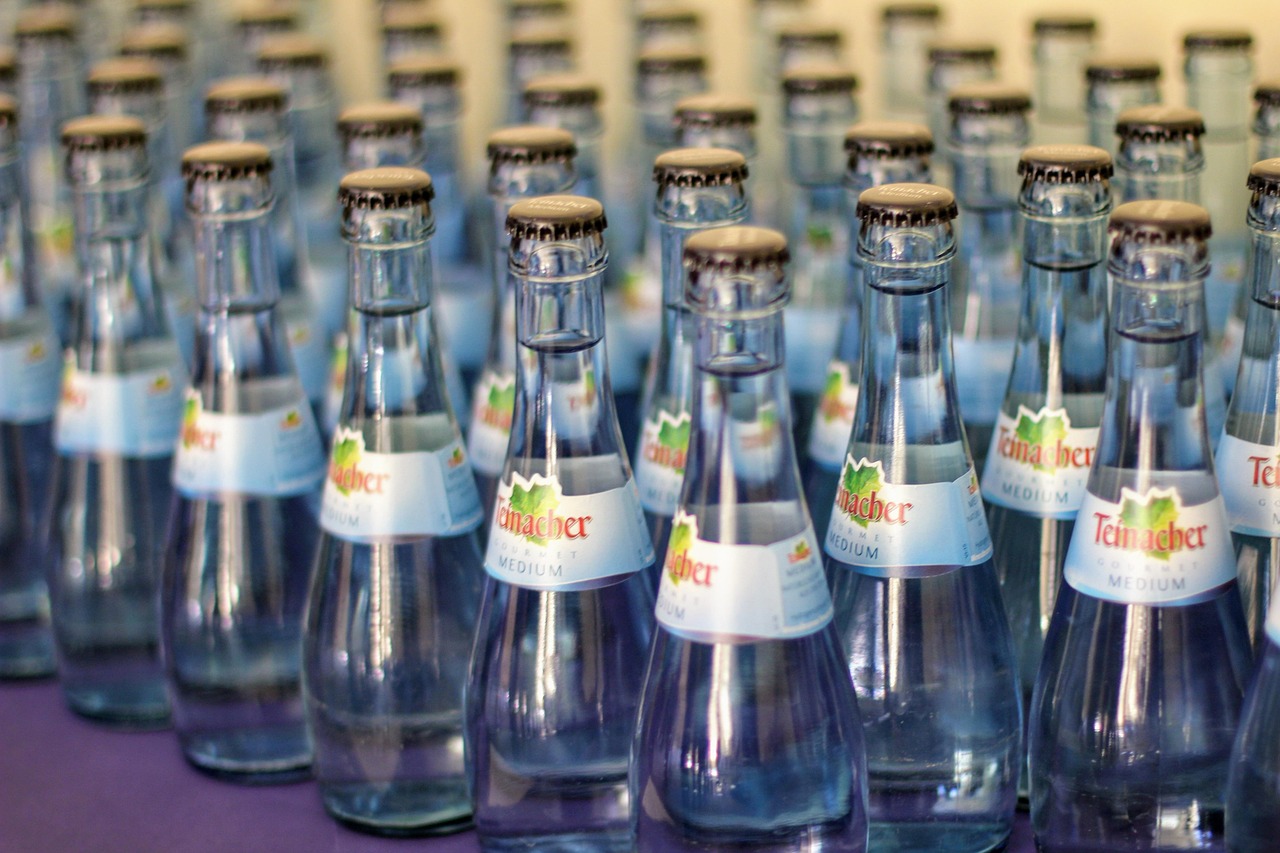CAM 20 TASK 2 (2 PARTS): FREE WATER SUPPLY
Access to clean water is a basic human right. Therefore every home should have a water supply that is provided free of charge.
To what extent do you agree or disagree?
Sample Answer
Waterborne illnesses and diseases have reached epidemic proportions for the last several decades, especially in the underdeveloped and developing world, which has prompted the question of whether every household should be equipped with a free-of-charge water supply system. Since access to clean sources of water falls rightly into the tenet of fundamental human rights, I agree with this proposal to a certain degree and would also note some important reservations.
The democratisation of water provision yields tangible benefits. If water for daily domestic usage is readily available without incurred costs via home outlets, such as pipes and faucets, urban and rural inhabitants alike will not have to resort to more rigorous and labour-intensive means of securing water like well drilling. Not to mention more life-threatening water sourcing techniques, such as cave drilling or self-filtration. A salient example would be the United Kingdom where clean, drinkable water is readily provided through faucets within kitchens and bathrooms. The UK residents, therefore, can utilise water for household activities, ranging from lawn cleaning to car washing, without relying on external sources, a plus that should not be taken for granted. Concerning health, free and clean water can improve the average person’s health and productivity. In essence, since clean water can be accessed from the comfort of people’s homes, this would not only reduce the risk of contracting waterborne diseases but also eliminate the need to purchase bottled water from commercial retailers.
Though I acknowledge the benefits of household water provision, I note a number of caveats associated with this proposal. Regarding cleanliness, a home water supply system does not necessarily mean that it would provide ‘clean’ water since the process of manufacturing sanitised, drinkable water entails numerous complex steps, which may not be accessible and practical in developing countries. These stages include the removal of impurities, chlorination, and equipment installation & maintenance. To this end, considering ‘free’ water supply, a UK resident, for instance, can enjoy hygienic drinking water from a faucet in the sink, while the average resident in Vietnam may not have the same luxury. The water from the latter’s home may only be used for household activities but not drinking, as the filtration process may not live up to the standards to produce ‘acceptably clean’ water. Relatedly, the provision of free water may not actually be completely free-of-charge. In most developing countries, for example, the installation of a water system is already included in the construction of houses and apartments. Also, water bills are also counted into monthly household utility bills, meaning that water provision is technically not free. This is similar to developed countries, such as Finland, where clean water is provided completely free of charge, however, at the expense of very high tax rates among citizens. These latent costs hinder the democratisation of free and clean water, regardless of its paramount importance as basic individual rights.
In conclusion, though I agree with the proposal to provide free water to households, the level of cleanliness is the factor that dictates the level of provision. If residents desire fully sanitised, drinkable water, they should be required to pay higher prices for installation, filtration, and other hidden costs. However, if the water only needs to be clean enough for regular household usage, the cost of supply will likely be much less. Lastly, this suggestion satisfies fundamental human rights, but its application needs to be well-thought-out and requires collaboration from multiple stakeholders.
Marking by Chat GPT Plus
TỪ VỰNG HAY
Access to clean water is a basic human right. Therefore every home should have a water supply that is provided free of charge.
To what extent do you agree or disagree?
Sample Answer
Waterborne illnesses and diseases have reached epidemic proportions for the last several decades, especially in the underdeveloped and developing world, which has prompted the question of whether every household should be equipped with a free-of-charge water supply system. Since access to clean sources of water falls rightly into the tenet of fundamental human rights, I agree with this proposal to a certain degree and would also note some important reservations.
The democratisation of water provision yields tangible benefits. If water for daily domestic usage is readily available without incurred costs via home outlets, such as pipes and faucets, urban and rural inhabitants alike will not have to resort to more rigorous and labour-intensive means of securing water like well drilling. Not to mention more life-threatening water sourcing techniques, such as cave drilling or self-filtration. A salient example would be the United Kingdom where clean, drinkable water is readily provided through faucets within kitchens and bathrooms. The UK residents, therefore, can utilise water for household activities, ranging from lawn cleaning to car washing, without relying on external sources, a plus that should not be taken for granted. Concerning health, free and clean water can improve the average person’s health and productivity. In essence, since clean water can be accessed from the comfort of people’s homes, this would not only reduce the risk of contracting waterborne diseases but also eliminate the need to purchase bottled water from commercial retailers.
Though I acknowledge the benefits of household water provision, I note a number of caveats associated with this proposal. Regarding cleanliness, a home water supply system does not necessarily mean that it would provide ‘clean’ water since the process of manufacturing sanitised, drinkable water entails numerous complex steps, which may not be accessible and practical in developing countries. These stages include the removal of impurities, chlorination, and equipment installation & maintenance. To this end, considering ‘free’ water supply, a UK resident, for instance, can enjoy hygienic drinking water from a faucet in the sink, while the average resident in Vietnam may not have the same luxury. The water from the latter’s home may only be used for household activities but not drinking, as the filtration process may not live up to the standards to produce ‘acceptably clean’ water. Relatedly, the provision of free water may not actually be completely free-of-charge. In most developing countries, for example, the installation of a water system is already included in the construction of houses and apartments. Also, water bills are also counted into monthly household utility bills, meaning that water provision is technically not free. This is similar to developed countries, such as Finland, where clean water is provided completely free of charge, however, at the expense of very high tax rates among citizens. These latent costs hinder the democratisation of free and clean water, regardless of its paramount importance as basic individual rights.
In conclusion, though I agree with the proposal to provide free water to households, the level of cleanliness is the factor that dictates the level of provision. If residents desire fully sanitised, drinkable water, they should be required to pay higher prices for installation, filtration, and other hidden costs. However, if the water only needs to be clean enough for regular household usage, the cost of supply will likely be much less. Lastly, this suggestion satisfies fundamental human rights, but its application needs to be well-thought-out and requires collaboration from multiple stakeholders.
Vocabulary
- Waterborne illnesses and diseases – Bệnh do nước gây ra
- Free-of-charge water supply system – Hệ thống cung cấp nước miễn phí
- Tenet of fundamental human rights – Nguyên tắc quyền con người cơ bản
- Important reservations – Những điểm còn e ngại / cần cân nhắc
- Democratisation of water provision – Việc phổ cập quyền tiếp cận nước
- Tangible benefits – Lợi ích rõ ràng
- Rigorous and labour-intensive means of securing water – Cách lấy nước vất vả, tốn sức
- Life-threatening water sourcing techniques – Cách lấy nước nguy hiểm tính mạng
- Salient example – Ví dụ tiêu biểu
- A plus that should not be taken for granted – Lợi ích không nên xem nhẹ
- Comfort of people’s homes – Sự tiện lợi tại nhà
- Commercial retailers – Các nhà bán lẻ thương mại
- Caveats associated with this proposal – Hạn chế đi kèm với đề xuất này
- Manufacturing sanitised, drinkable water – Quá trình sản xuất nước sạch có thể uống
- Removal of impurities – Loại bỏ tạp chất
- Equipment installation & maintenance – Lắp đặt và bảo trì thiết bị
- Filtration process may not live up to the standards – Quá trình lọc không đạt tiêu chuẩn
- Completely free-of-charge – Hoàn toàn miễn phí
- Very high tax rates – Thuế suất rất cao
- Latent costs hinder the democratisation – Chi phí ẩn cản trở sự phổ cập
- Paramount importance as basic individual rights – Tầm quan trọng tối cao như quyền cơ bản
- Fully sanitised, drinkable water – Nước đã tiệt trùng hoàn toàn, có thể uống
- Hidden costs – Chi phí ẩn
- Well-thought-out – Được cân nhắc kỹ càng
- Collaboration from multiple stakeholders – Sự hợp tác của nhiều bên liên quan
✔ DÀN Ý
❖ Introduction:
- Thực trạng: Nước sạch là quyền cơ bản nhưng nhiều nơi dân vẫn thiếu.
- Quan điểm: Đồng ý cấp nước miễn phí cho hộ gia đình, nhưng cần cân nhắc mức độ và chi phí thực tế.
❖ Body 1 – Lợi ích của việc cấp nước miễn phí:
- Giúp người dân tiếp cận nước sạch dễ dàng hơn → giảm bệnh do nước bẩn.
- Ví dụ: Ở Anh, người dân có thể dùng nước trực tiếp từ vòi để uống và sinh hoạt.
- Tiết kiệm chi phí mua nước đóng chai → nâng cao sức khỏe, tăng hiệu suất làm việc.
- Là quyền con người cơ bản → nên được đảm bảo, đặc biệt cho vùng khó khăn.
❖ Body 2 – Mặt trái/ Hạn chế:
- Nước “miễn phí” không thật sự miễn phí → thường đi kèm thuế cao hoặc phí ẩn.
- Ví dụ: Ở Phần Lan, nước sạch miễn phí nhưng thuế rất cao.
- Không phải nơi nào cũng xử lý được nước đạt chuẩn uống được.
- Ví dụ: Ở Việt Nam, nước máy dùng để rửa, tắm nhưng không thể uống trực tiếp.
- Nếu triển khai đại trà mà không kiểm soát → dễ lãng phí, mất công bằng.
❖ Conclusion:
- Cấp nước sạch miễn phí là cần thiết để bảo vệ quyền cơ bản.
- Nhưng cần phân loại mục đích dùng: sinh hoạt cơ bản có thể miễn phí, còn uống cần trả phí xử lý.
- Cần chính sách rõ ràng, có hướng dẫn và sự phối hợp giữa nhà nước và người dân.


